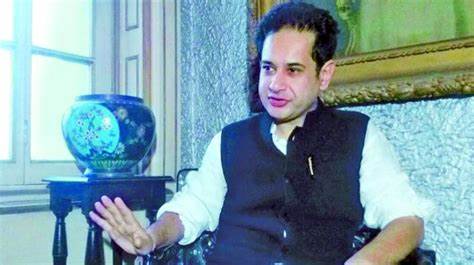Pradyot Kishore Debbarma, the Tipra Indigenous Peoples Regional Alliance (TIPRA) chief, announced on Friday that a mediator will come to the state on May 8 to address the constitutional demands of the people in Tripura. The announcement comes after meetings with heads of various tribal communities in Tripura to develop a roadmap for talks with the Government of India.
Debbarma also took the opportunity to respond to the ongoing crisis in Manipur, where ethnic tensions have led to the evacuation of thousands of people to guarded camps under army protection. He offered to bear the airfare of Tripura students trapped in the violence in Manipur and appealed to the Meitei and Kuki communities in Manipur to refrain from violence. He emphasized that burning houses, churches, and temples is not a solution to the conflict and called on both sides to find a peaceful resolution.
Debbarma’s announcement regarding the mediator coming to Tripura to address the constitutional demands of the people is a positive development for the state. The demand for greater autonomy and recognition of the unique identity of the indigenous communities has been a long-standing issue in Tripura. The TIPRA, under the leadership of Debbarma, has been at the forefront of the movement to fulfill these demands.
The meetings with heads of various tribal communities in Tripura to develop a roadmap for talks with the Government of India is an important step towards addressing the underlying issues that have led to the demand for greater autonomy and recognition of the unique identity of the indigenous communities. The involvement of a mediator in the talks is a positive sign that the government is willing to listen to the demands of the people and work towards finding a peaceful resolution.
Debbarma’s response to the crisis in Manipur is also noteworthy. The offer to bear the airfare of Tripura students trapped in the violence in Manipur is a humanitarian gesture that shows solidarity with the affected people. The appeal to the Meitei and Kuki communities in Manipur to refrain from violence is a timely call for peace in the region. Debbarma’s emphasis that burning houses, churches, and temples is not a solution to the conflict is a reminder that violence only begets more violence and that a peaceful resolution must be sought.
Pradyot Kishore Debbarma’s announcement that a mediator will come to Tripura on May 8 to address the constitutional demands of the people is a positive development for the state. The meetings with heads of various tribal communities in Tripura to develop a roadmap for talks with the Government of India is an important step towards finding a peaceful resolution to the long-standing demand for greater autonomy and recognition of the unique identity of the indigenous communities. Debbarma’s response to the crisis in Manipur shows his commitment to peace and solidarity with the affected people. It is hoped that the talks in Tripura and the response to the crisis in Manipur will lead to lasting peace and prosperity in the northeast region of India.



